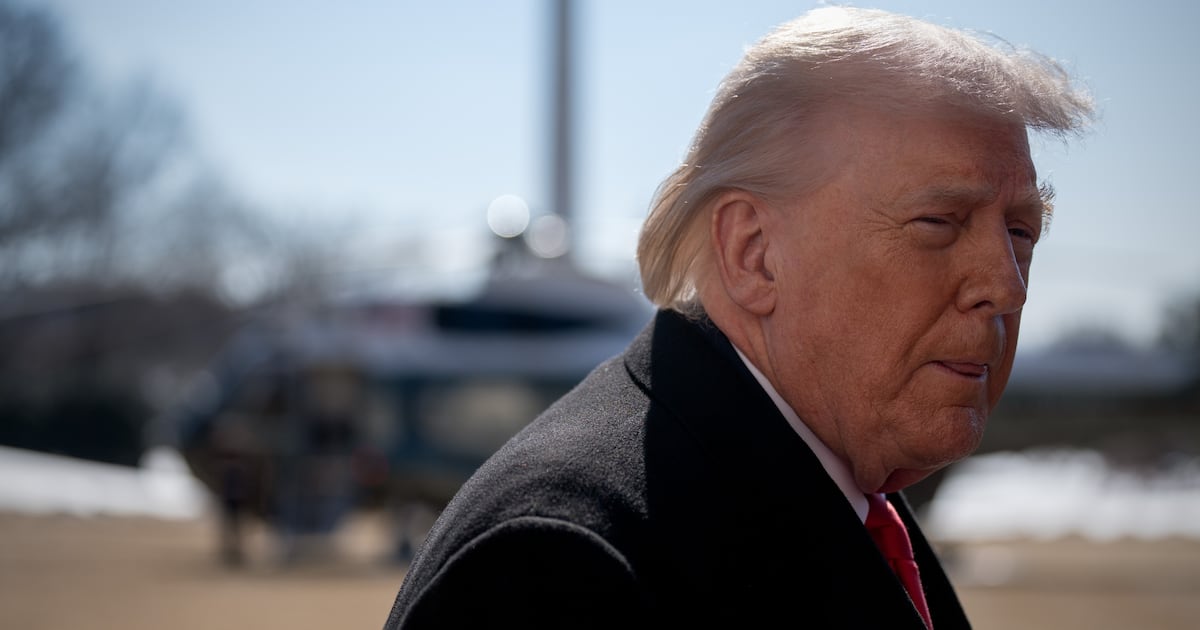Sometimes crude binaries can be instructive, and it's possible to distinguish two different types of people: those who seek out generous and universalist empathy with others, and those who prefer the warm cocoon of tribal solidarity.
In his new book, The Crisis of Zionism, Peter Beinart very much places himself in the first category, while in his review of it for Tablet, Bret Stephens, unfortunately, demonstrates that he squarely belongs in the second. Stephens’ angry, mean-spirited tirade against Beinart begins with a frank display of this mentality. He opens his lengthy denunciation of Beinart by angrily condemning him for daring to imagine that a young Palestinian boy called Khaled Jaber “could have been my son.”

Beinart writes that the evolution of his views on Israel and its occupation was kick-started by watching a video of the child crying out in horror as his father was being hauled away by Israeli occupation forces for “stealing water.” Beinart's innate decency and humanity were, for whatever reason, deeply touched by this highly affecting scene. It's always possible to be desensitized to the suffering of others, but for whatever reason he was moved by the child's plight—and no doubt the irony of Israeli occupiers arresting a Palestinian for “stealing” what is, after all, the water that belongs to Palestinians and not to the Israeli occupiers. It tapped into humanist and universalist sentiments deep enough to see his own son in the young boy and, implicitly, himself in the father living under a system of systematic and brutal oppression and exploitation.
But Stephens is having none of it. How, he asks indignantly, could “someone named Khaled Jaber...have been Beinart’s son?” The answers are so simple and fundamental that they are embarrassing to posit. He could be his son because all people are brothers and sisters, and we all can and should identify with each other across ethnic, racial, religious and cultural divides. Beinart can do this. Stevens, apparently, can't, and indeed is offended when others do. He demands to know “Are they [the Jabers] supporters of peaceful co-existence with Israel or advocates of terrorism?” With these and other litmus tests, Stephens posits that Beinart's expression of human fellowship is in fact a failure of journalistic integrity. It’s true that Beinart never stopped to ask if these are "good Arabs" or "bad Arabs," but simply identified with a child suffering from the abuses of an occupation. Indeed, the occupation itself rarely stops to ask such questions; the occupation treats almost all Palestinians as noncitizens and denies their basic human and national rights.
It's even more ironic that Stephens would harp on Khaled Jaber's name given that his own family name is itself an adopted one. His paternal grandfather apparently was named "Ehrlich," just as Prime Minister Benjamin Netanyahu's father was born with the surname Mileikowsky (although the Prime Minister often tries to draw a connection between his family's ideologically-adopted name and that on an ancient Jewish relic found in Jerusalem bearing the name Netanyahu).
There’s nothing wrong, of course, with adopting the classically Anglo-Saxon "Stephens" as a more socially convenient surname in the New World. It just that, under those circumstances, Stephens’ dismissal of the notion that Beinart could possibly have a son called "Khaled Jaber" denotes a peculiar blindness to Stephens' own complex family history of name-changing and a very narrow and rigid view of what names might meet in any given human family. My own maternal surname is Schenck, because my mother is a direct descendent of one of the original Dutch inhabitants of Brooklyn, while my paternal name is Ibish, which derives from Syrian Kurdish ancestry. If Schenck and Ibish can meet in me, why not Jaber and Beinart (or Stephens, or Ehrlich, for that matter) in someone else? Stephens’ outrage that Beinart would dare to imagine that he might have a son like, or even called, Khaled Jaber is not only mean-spirited, it's downright disturbing.
Stephens's review boils down to an extended defense of Israel's occupation. Citing the predictable, if not inevitable, consequences of unilateral Israeli actions (as opposed to mutual Israeli agreements with Arabs such as the peace treaties with Egypt and Jordan), specifically the “unilateral redeployment” in Gaza conducted by then-Prime Minister Ariel Sharon in 2005 (which Sharon correctly never called a “withdrawal”), Stephens argues "against further territorial withdrawals, at least until something fundamental changes in Palestinian political culture." Of course, what supporters of peace are asking for is a reasonable two-state Israeli-Palestinian agreement, not unilateral "withdrawals."
Stephens cites Leon Wieseltier of The New Republic as quite correctly observing that, "characterizing anti-Semitic acts as a response to something Jews did doesn’t explain anti-Semitism.” Yet he's quick to return this compliment directly to the Palestinians; for Stephens, things Palestinians do or don't do justify occupation and all of the abuses that go with it. For Stephens, Palestinian actions do explain morally and politically indefensible anti-Palestinian sentiments and policies. "Would Beinart,” he demands, "object to an argument that African-Americans are at least partly responsible for white racism because they commit a disproportionate share of violent crime in the United States?" Yet this is precisely the logic Stephens employs when it comes to the Palestinians.
"Palestinians need not celebrate suicide bombers or cheer the murder of Jewish children," Stephens writes, as if this were the typical Palestinian mentality or majority position. In fact for the past fifteen years at least the majority of Palestinians, like the majority of Israelis, have been in favor of a two-state peace agreement. But they both just do not believe the other side is sincere.
The behavior of both parties has given ample scope for doubt on each side, and for those, like Stephens and his numerous Arab counterparts, there is no difficulty whatsoever in finding any number of reasons to dismiss the sincerity of the other party. It's an extremely simple matter to come up with reasons not to cooperate with rivals and those who have been historical enemies. It's much harder, but much more noble and constructive, to—as Beinart has—frankly acknowledge the faults on both sides and look for grounds on which to cooperate and find a mutually-beneficial conflict-ending solution. But this requires a political, intellectual and moral leap beyond comforting narrow identifications and tribal narratives. It requires embracing principles and enlightened strategic goals.
It is, sadly, the moral aspect of this challenge that Beinart, like others on the Arab side, has had the courage to embrace that bothers Stephens the most. Stephens casts Israel as surrounded by "the ardent, sometimes fanatic, hostility of 350 million neighboring Arabs," more than 1 billion additional Muslims and its own Palestinian citizens. Without any basis in fact he declares that, “The Arab Spring has become an Islamist winter,” even though Islamists are not actually in power in any Arab country at all thus far. And, he posits, Iran is poised to become a nuclear power bent on the destruction of Israel. Under such circumstances, he argues that since politics always involves choosing “the lesser evil,” Israel's policies of not only maintaining its occupation but continuing to expand its settlements are somehow rational. He dismisses Beinart's call for a boycott of the settlements in Israel's own interests as part of “modern-day Israel bashing,” and refuses to acknowledge the threat that the settlements pose to Israel's security, not to mention its self-definition as a “Jewish” and “democratic” state. The fact that the de facto Israeli state, which for most of its existence has included the occupied Palestinian territories, is now neither Jewish nor democratic in any meaningful sense does not appear to cause Stephens any serious concern. He certainly proposes no solution to this issue or even recognizes it as a serious problem.
"Israel,” Stephens writes, “exists so that the Chosen People might suffer a little less as a Choosing People,” and if it “chooses” to extend the occupation indefinitely denying millions of Palestinians their basic human and national rights for whatever reasons it sees fit, so be it. The notion that anyone might raise moral or enlightened, long-term strategic objections to such a choice—the de facto policy of the present Israeli government, which includes numerous senior figures who have dismissed both the possibility and the need for a peace agreement with the Palestinians—he identifies as “the core problem” with Beinart's book.
I don't think Stephens has any real appreciation for how deep or dangerous these waters he is leaping into really are. If Palestinians, Arabs and Muslims in general were to embrace the same attitudes towards Israel, especially if the Israeli state were to follow his prescriptions, what kind of policies should we expect them to adopt in the long run? His law of the jungle—an unabashed version of Hobbes' “war of all [tribes] against all”—leaves little room for a bright future for Israel and its people.
Were Stephens to have been born with the name "Jaber" rather than his own (or "Ehrlich," for that matter), to what faction of Palestinian politics would he adhere? He wouldn't necessarily be a member of Hamas or Islamic Jihad, but he certainly couldn't, on the basis of this logic, be among those nobly striving to seek peace with Israel, building institutions on the ground in spite of the occupation, persisting in what is universally recognized as extremely effective security cooperation with occupation forces in “Area A” of the West Bank despite the lack of any clear path towards liberation, or seeking to reconcile themselves to permanent coexistence with an Israeli state that defines itself as Jewish.
His logic of choosing between “unpalatable alternatives” and emphasizing tribal self-protection above all other values militates passionately against any of those policies. And would he not also surely be informed by the Palestinian mirror image of his own Jewish tendentious, chauvinistic and, frankly, paranoid worldview? It should come as little comfort to him that, indeed, there are lots of Palestinians and other Arabs who share his mentality. But it should be a great comfort to the rest of us that the large majority, like most Israelis, do not.






